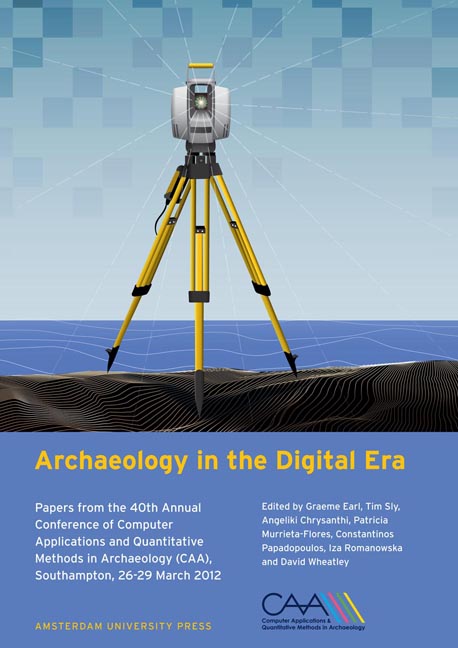 Archaeology in the Digital Era
Archaeology in the Digital Era SEAD - The Strategic Environmental Archaeology Database Inter-linking Multiproxy Environmental Data with Archaeological Investigations and Ecology
Published online by Cambridge University Press: 16 February 2021
Summary
Abstract:
The volume of data on past environmental and climate changes, as well as human interactions with these, has long since passed the level where it is manageable outside of large scale database systems. The Strategic Environmental Archaeology Database project aims to not only store and disseminate such data, but also provide tools for querying and analysing them, whilst maintaining a close connection with the archaeological and ecological data that are essential for their comprehensive interpretation. Large scale, geographically and chronologically unrestricted databases provide us with essentially unlimited scope for putting individual sites into a broader context and applying locally collated data to the investigation of earth system level changes. By providing integrated access to data from a variety of proxies, including plant macrofossils, pollen, insects and geochemistry, along with dating evidence, more complex questions can be answered where any single proxy would not be able to provide comprehensive answers.
Keywords:
Environmental Archaeology, Database, Archive, Software, Palaeoecology
Introduction
SEAD, the Strategic Environmental Archaeology Database, is an open access archive for environmental archaeology and Quaternary science data. It aims to provide easy access to the raw data from a variety of investigationtypes where, primarily, biological or physical proxy data have been used to study the past. As an environmental archaeology database, the focus naturally leans towards the human and cultural aspects of prehistory, but the “natural”, Quaternary science, background data essential in the interpretation of these phenomena are considered fundamental to the long-term usefulness of the system. Modern calibration and environmental survey data (e.g. insect pitfail traps, vegetation surveys) are also within the scope of the system. These are limited in number at the moment, but are scheduled to play an increasingly more important role in quantitative landscape and archaeological reconstructions, as science demands more empirically supported interpretations. This paper discusses a number of data ingestion and archiving related aspects of the project, the initial development phase of which runs from 2008 to 2013. It is hoped that the information here will prove useful to those considering undertaking similar ventures, or considering entering their own data into an existing archive such as SEAD. Readers interested in more applied aspects of the project are kindly directed towards Buckland et al. 2010.
- Type
- Chapter
- Information
- Archaeology in the Digital EraPapers from the 40th Annual Conference of Computer Applications and Quantitative Methods in Archaeology (CAA), Southampton, 26-29 March 2012, pp. 320 - 331Publisher: Amsterdam University PressPrint publication year: 2014


